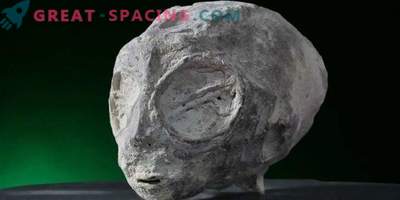
The image shows a modern dry and lifeless Mars (left), comparing it with a view of 3.5 billion years ago with the presence of water (right). Surface rocks slowly contacted water, sucking it into the Martian mantle, which led to the formation of an inhospitable desert.
In the process of finding life, scientists begin by identifying the key source of its maintenance - fresh water. The current surface of the Red Planet is considered barren, but there is evidence that it was previously warm and humid. But what happened to the water? A new study will try to answer this, stating that the fluid is locked in the rock.
Representatives of the Oxford Earth Science Department believe that the Martian surface reacted with water, after which it absorbed it, increasing the oxidation of rocks and turning the planet into a desert.
Early studies indicated that the predominant part of the water moved into space due to the collapse of the planetary magnetic field and the effects of high-energy stellar winds. But the theory still does not explain where all the water has gone.
Now scientists believe that Martian mineralogy will help in understanding this. They created models based on the composition of terrestrial rocks in order to calculate how much water can be removed from Mars with a variant of contact with the rock. The analysis showed that basalt rocks can accommodate 25% more water than the Earth has. This variant is also indicated by Martian meteorites, which seem to be chemically reduced compared to surface rocks and differ in compositional form. On Earth, plate tectonics prevents this situation, but there was no such process in early Mars.
In addition, the Red Planet is inferior in size to the Earth, differs in temperature indicators and has a large amount of iron in the silicate mantle. So the Martian surface is more prone to reaction with surface waters.
This study combines many similar findings. The inner planets of our system are similar in composition, but small differences lead to different development scenarios. Once upon a time there was water on Mars, and therefore the potential to sustain life. But scientists believe that you need to look at other planets. What if there were more iron on Earth or a smaller planet? How would this affect the processes? Will this change Venus? The answers will help determine the role of chemistry in planetary formation.











































